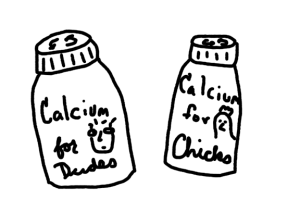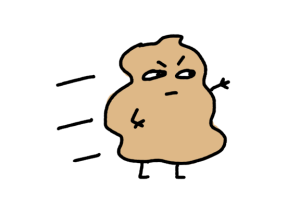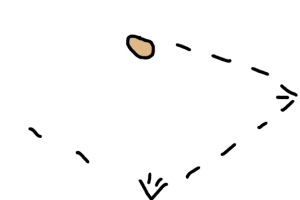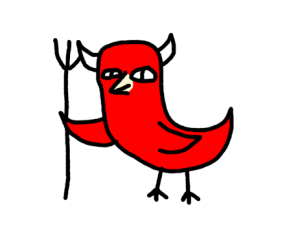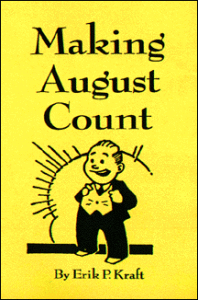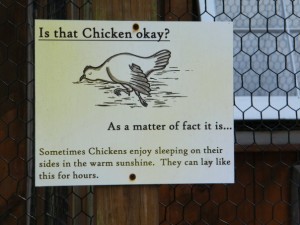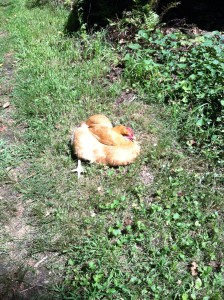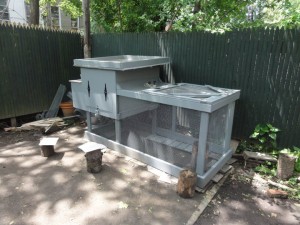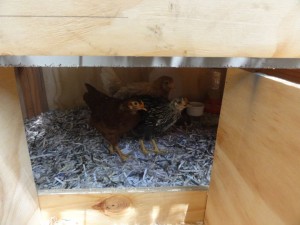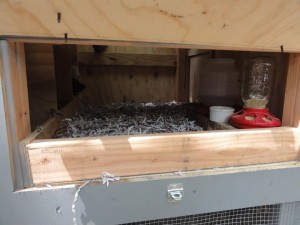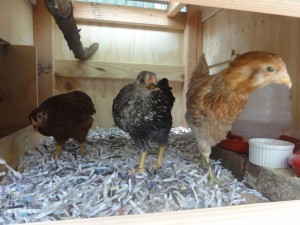The Mystery of the Weird Rubber Eggs!
Friday, August 23rd, 2013(Broadcast 8/23/2013)
One of the big perks of having chickens is obviously the eggs. You learn right away how different eggs from your own chickens are compared to eggs from the supermarket. They taste way better, the yolks are much brighter, the shells seem tougher, and you can even leave them out unrefrigerated if you want to. I want to, just to seem like a daredevil to the uninitiated. It’s not like they sit out for very long, anyway. If I don’t eat them, I find some way to use them as currency, so my supply stays fresh.
So what do you do then when you start to get eggs that are a little, well, weird? I’ve had ones before that have been kind of pale and flimsy. What are egg shells made out of? Calcium. So how do you think you might strengthen a weak eggshell? Add more calcium to the chickens’ diet. I now leave out calcium chips for my chickens every day. We do still get the occasional oddball brittle egg, but the supplements seem to have drastically lowered the occurrence.
There is, however, another sort of weird egg that is possibly the proverbial “bad egg.” You know those water balloon wiggly things you can buy in stores that the whole purpose of them is that they’re difficult to hold? These eggs feel like that. They have the coloration of an egg, but no shell. The egg lining seems to be what holds them together. I probably don’t need to tell you that this is super freaky. The first time it happened to one of my chickens, I was very confused, and that confusion continues to this day. The rubber eggs seem to come at odd times, because often when I find them, they’re in the bedding under the roost. So it’s like a chicken is asleep, and the egg sneaks out before it’s ready for prime time. Wake up chicken! An egg is escaping! They also will sometimes appear in the nesting boxes, but are usually broken at that point, since this is not the sort of egg that can hold up to being sat on.
When you report a rubber egg to the internet, the first question you get in response is whether or not the chicken is young and new to laying. When this first happened, yes, my chickens were pretty young and probably still working the kinks out of the production system. But they’re over a year old now, so I think they should have figured it out. The next suggestion is that it’s a calcium issue. But I give them oyster shells every day, so you’d think they’d be good there too, but these eggs do still happen. The third issue could be that something is internally wrong with the chicken, which could be very bad. The problem for me here is that I have no way to know which chicken is laying these, and if it’s the same one, or if they do this on a rotating basis. I almost never catch them in the act of laying eggs, normal or otherwise. The only thing I’m somewhat sure of is that it’s one of the Mandrell Sisters, due to the color of the egg, which is slightly different than a Barred Rock egg. Even then, this egg is an anomaly, so I don’t know that I can judge an egg by its color here. It seems like a situation where I can really only sit and wait for some other symptom to reveal itself to know if it’s something else. The odd rubber egg is not necessarily anything to worry about. Full time rubber egg production is more of a problem.
Researching this issue led me to the discovery of an article about something called a “cock’s egg.” Every so often a hen will lay an egg that is much smaller than usual. It got the name “cock’s egg” because people back in the day thought a rooster must have laid it because it was so small and strange. So then you ask yourself, why would a rooster lay an egg? And if you were an old timey farmer person, the answer would obviously be because The Devil made him do it, because that was their answer for everything. Now, I’m not a man of the cloth, so I’m not entirely sure of what The Devil does or does not get up to, but really, The Devil? This is your vehicle of self-expression? “Spreading plague is a real drag sometimes, so maybe I’ll just go make that rooster lay a kind of small egg.” The classic cock’s egg is more or less normal, aside from the size, but any abnormal egg can be considered a cock’s egg, so The Devil’s been in my coop too, apparently. Now I know he’s really got time on his hands. Look, Devil, I appreciate a good practical joke now and then, but you really need to step up your game. I don’t want to go overboard on calcium-filled treats just to find out I’m being punked by the Old Deluder. Either fully delude me, or lay off the chickens. Don’t make me call a chicken exorcist, when I know deep down everyone lays a weird egg once in a while.
An earlier post with some video of one of my rubber eggs.
The article about “cock eggs,” sometimes known as “fart eggs.”

